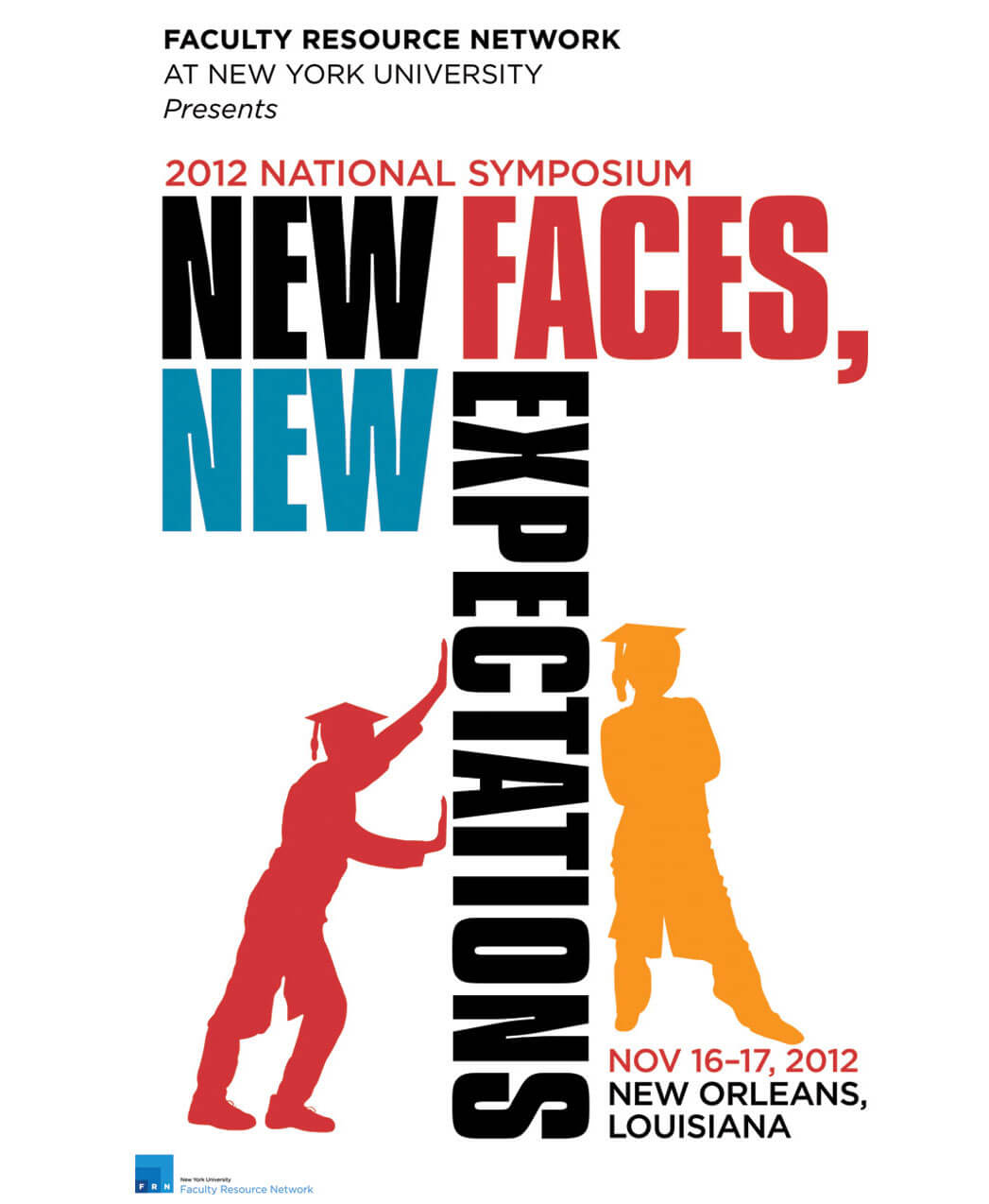Dillard University and Xavier University of Louisiana
New Orleans, Louisiana
Symposium Overview
The college population is changing and the traditional college student—between the ages of 18–22, living on campus, working part time if at all, pursuing education for its own sake rather than as vocational training—is no longer the norm. Increasingly students are balancing school with demanding home or work lives, and seeking education as a stepping stone to employment in a competitive workforce. These students are bringing new expectations to the classroom, which raises new challenges … Show more
The college population is changing and the traditional college student—between the ages of 18–22, living on campus, working part time if at all, pursuing education for its own sake rather than as vocational training—is no longer the norm. Increasingly students are balancing school with demanding home or work lives, and seeking education as a stepping stone to employment in a competitive workforce. These students are bringing new expectations to the classroom, which raises new challenges for faculty members and institutions of higher education. How can we balance the changing needs of 21st century students with the longstanding goal of the academy to provide a substantive educational experience?
The growing presence of adult students and students with significant commitments outside the classroom (such as children and full-time work) is transforming the make-up of our college populations. Recent (2008) statistics show that 47% of college students are independent adults over 24—some are married, others are military veterans, and many are responsible for legal dependents other than a spouse. How can we successfully teach these students who are stretched thin by their many commitments both inside and outside the classroom?
Moreover, the reasons why students attend college are changing. Even students of traditional college age are affected by economic concerns; their mindset is more pragmatic, and they are less interested in knowledge for its own sake. After the economic downturn in 2008 this attitude has only become more pronounced, creating a tension between the traditional goals of liberal arts education and students’ legitimate concerns about future employment. What teaching and learning strategies can we use to help today’s practical students make connections between what they learn in the liberal arts classroom and the critical skills they will need to be successful in their careers and in their role as engaged citizens? How can we ensure that our professional majors prepare students for the working world not only in terms of specific skills, but also in terms of communication, problem solving, and ethical decision making? Finally, how can we help to keep learning at the center of the college experience?
In November 2012 faculty members and other representatives of Faculty Resource Network institutions addressed these questions and issues during a national symposium on “New Faces, New Expectations,” hosted by Dillard University and Xavier University of Louisiana in New Orleans, Louisiana.

Spring 2013 Journal
Presentations
Presentations
Robert M. Kahn, LaGuardia Community College
Heather Bryant, Pace University
Jane Collins, Pace University
Deborah Poe, Pace University
Josef Vice, Kaplan University
Stephanie Lewis Thompson, Kaplan University
Carol A. Davenport, Johnson C. Smith University
Marsha I. Walker, Johnson C. Smith University
Richard Vogel, Farmingdale State College, SUNY
Beverly L. Kahn, Farmingdale State College, SUNY
Nicola Davis Bivens, Johnson C. Smith University
Anita Bledsoe-Gardner, Johnson C. Smith University
Melissa Knosp, Johnson C. Smith University
Thomas B. Priest, Johnson C. Smith University
Deborah Brown Quick, Johnson C. Smith University
James P. Lawler, Pace University
Lilleth Newby Beckford, The College of New Rochelle
Rhonda McCoy, Paine College
Elizabeth Siciliano, Paine College
Marva Stewart, Paine College
Dezette C. Johnson, Johnson C. Smith University
Richard (Roy) Tietze, Marymount Manhattan College
Presentation by Rosemarie Serrano, Westchester Community College, Richard (Roy) Tietze, Marymount Manhattan College, and Michael White, Xavier University of Louisiana
Gerceida Jones, New York University
Rita Mitchell, Huston-Tillotson University
Jane L. Indorf, LaGuardia Community College
Jean Chmielewski, LaGuardia Community College
Christine A. Hrycyna, LaGuardia Community College
Katerina V. Thompson, LaGuardia Community College
William R. LaCourse, LaGuardia Community College
Kathy L. Sutphin, LaGuardia Community College
Michael S. Gaines, LaGuardia Community College
Jeffrey Gaab, Farmingdale State College (SUNY)
Alice E. Stephens, Clark Atlanta University
April D. Lundy, Clark Atlanta University
Andrew Will, Clark Atlanta University

